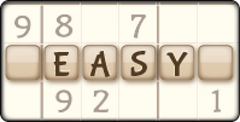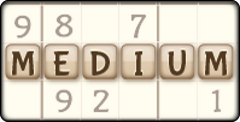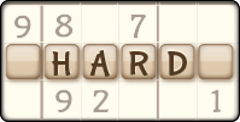Is Sudoku Good for Your Brain? Discover the Cognitive Benefits
Sudoku has long been associated with high-brow games such as chess and backgammon, but anybody and everybody can play this game! With so many people looking to preserve their brain capacity, especially as they get older, Sudoku provides an incredibly compact and concise way of looking after your faculties. Let's show you exactly why Sudoku is good for your brain:
Cognitive Benefits of Sudoku
The cognitive benefits of playing Sudoku regularly are varied, from improved concentration and focus to enhanced problem-solving and critical thinking skills, increased mental flexibility and agility, and so much more. Let's show you the most important of these and how Sudoku can develop them:
Enhancing Memory Skills
Sudoku enhances memory skills in a number of different ways:
- Logical thinking and problem-solving stimulate brain activity, resulting in improved memory function over time.
- Sudoku requires players to remember numbers placed in the puzzle and keep track of those that are still needed to complete it, which exercises short-term memory and working memory capabilities.
- As players engage with the game, they develop the ability to recognize patterns and strategies, which is critical for retaining information and applying it to solving puzzles more efficiently.
- By focusing on the grid and ensuring numbers do not repeat in rows, columns, or subgrids, players enhance their attention to detail, which supports memory retention indirectly.
Improving Problem-Solving
Sudoku is excellent for problem-solving skills:
- Because Sudoku requires us to use logic and deduction to solve the puzzles, this enhances our critical thinking and analytical skills, which is not just beneficial to the game but can be applied to other problem-solving scenarios.
- Regular engagement with Sudoku helps us develop a set of problem-solving techniques, which don't just apply to the game but can be used in a number of different settings, whether it's an academic subject or a real-world situation.
- The nature of playing Sudoku helps cultivate resilience and a willingness to explore alternative strategies when faced with challenges, which is something severely lacking in the modern world due to our ability to access shortcuts and solutions instantly online.
- Successfully completing Sudoku puzzles instills a sense of accomplishment, which gives us the motivation to tackle more significant challenges in every aspect of our lives.
Boosting Concentration
Sudoku can significantly boost our concentration in a number of ways:
- In addition to maintaining our attention, the very nature of Sudoku demands that we block out external distractions. If we lose track of certain numbers due to interruptions, this reinforces the need for sustained attention, boosting our concentration in other areas of life.
- Engaging with Sudoku regularly is a form of cognitive exercise that sharpens our minds, where we can learn to visualize possibilities and maintain our attention on complex tasks.
- The game emphasizes logical deduction and critical reasoning, which requires us to stay mentally engaged. This stimulation enhances our focus as we analyze the possibilities and eliminate incorrect options in a systematic manner.
Reducing Mental Decline
We've seen how Sudoku plays a significant role in our concentration, which means that it will reduce mental decline, but it can also benefit in the following ways:
- Playing Sudoku and games that challenge ourselves contributes to our ability to form new neural connections, also known as neuroplasticity; as the brain reorganizes itself, this results in better cognitive health.
- While there's concern about age-related cognitive decline, playing mentally stimulating activities such as Sudoku may help to reduce the risk of Alzheimer's disease or dementia.
- Playing Sudoku puzzles can provide a mental break from sources of stress and anxiety, which is beneficial for overall brain health. Taking time to enjoy a game of Sudoku during a particularly stressful time in your life gives your brain respite.
- As we need to pay particular attention to the game, it becomes a structured way to engage our faculties, potentially slowing the rate of cognitive decline and reducing stress, which has been shown to be a major contributor to conditions like dementia and Alzheimer's.
Stress Reduction Through Puzzles
We talked about the reduction of stress and how it can benefit our cognitive functions, but playing Sudoku is an excellent stress-buster in various ways:
- Because the game requires concentration and logical thinking, this can promote a state of mindfulness, ensuring that we temporarily escape from external stresses, giving us a calmer mental state.
- Playing Sudoku in groups or sharing puzzles with friends can be an excellent method of enhancing social connections, which has been shown to be vital for emotional support and stress reduction.
- Incorporating Sudoku into our daily routine can create a structure that promotes relaxation and mental clarity. The predictability of solving these puzzles can be a comforting notion, which gives us a sense of control, particularly in a chaotic life.
- Sudoku engages our brain, providing a break from negative thoughts. By not fixating on stressors, this can result in a more positive outlook.
Comparing Sudoku to Other Games
If we compare Sudoku to other games, particularly in terms of cognitive benefits, Sudoku provides a number of advantages and shares some benefits with other similar mentally stimulating activities:
- Sudoku is excellent for developing logical thinking and pattern recognition, which can provide an advantage over something like crosswords, which are excellent for expanding general knowledge and vocabulary.
- Comparing Sudoku to chess, they both require intense concentration, but chess can be better for developing sustained focus, as Sudoku puzzles are shorter. Both games enhance pattern recognition, and specifically for Sudoku, numerical pattern recognition.
- Sudoku provides a number of unique benefits as it offers increasing levels of difficulty, such as Easy, Medium, and Hard on our Sudoku site; however, it's also an easy game to start, making it suitable for all ages and skill levels.
- It's a concentrated workout for specific cognitive skills while having a low learning curve because the rules are simple to grasp.
Tips for Maximizing Benefits
Play regularly, aiming to play at least a few times a week to engage your brain.
- Start with easier puzzles and gradually move to more challenging ones as your skills improve, keeping your brain active and stimulating your cognition.
- Concentrate on understanding the logical reasoning behind each move rather than just the act of filling in numbers, which will enhance your critical thinking and deductive reasoning skills.
- Use Sudoku as a form of mindfulness by focusing solely on the puzzle, which can reduce your stress.
By incorporating different strategies and recognizing that Sudoku is brilliant for your brain, it needs to be a part of your daily life. So what are you waiting for? It's time to reap the benefits!
Sudoku Levels
Seasonal Sudoku Games
More Games
Sudoku News
Disclaimer
DISCLAIMER: The games on this website are using PLAY (fake) money. No payouts will be awarded, there are no "winnings", as all games represented by 247 Games LLC are free to play. Play strictly for fun.





































